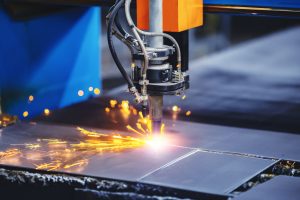CNC Machining Materials Selection Guide: Choosing the Right Materials for Your Application
Jan 31, 2022 Computer-assisted technology has become so commonplace that it’s difficult to recall a time when the precision calculations required to manufacture specialized parts for aircraft and surgical tools were done without it. However, it wasn’t until the 1970s that computer numerical control (CNC) machining started revolutionizing the manufacturing industry in countless ways. And one of those ways was to dramatically broaden the types of material that could be precision cut to suit the machinist’s purpose.
Computer-assisted technology has become so commonplace that it’s difficult to recall a time when the precision calculations required to manufacture specialized parts for aircraft and surgical tools were done without it. However, it wasn’t until the 1970s that computer numerical control (CNC) machining started revolutionizing the manufacturing industry in countless ways. And one of those ways was to dramatically broaden the types of material that could be precision cut to suit the machinist’s purpose.
Before CNC machining became widespread, metals like steel, aluminum, copper, and brass were pretty much the materials of choice for precision machining. Fast forward to the 21st century, and metal as well as metal alloys continue to be popular choices for CNC machining. But technological advancements have led to a vast array of additional options, including high-endurance plastics, wood, foam, fiberglass, and even phenolic linen.
This is a welcome development, but the sheer number of options may be overwhelming. In this guide to materials selection for CNC machining, we’ll take a brief look at some of the primary questions to ask as you choose the ideal materials to bring your project to life.
What Is the Intended Use of the Parts You’re Crafting?
The best CNC machining material to use in surgical instruments—for example, stainless steel, titanium, platinum, or palladium—is likely to be quite different from the ideal choice for crafting signs or architectural models, which lend themselves to rigid foam. Why? One reason: It’s critical that the material used for surgical tools is malleable enough for precision shaping but strong enough to be unbreakable during surgery, even if the part is long and slender, as in scalpels and forceps. In the case of architectural models, on the other hand, the priorities might include the price of the selected foam material and how well it displays the sharp details desired for a 3D representation.
What Environmental Conditions Must the Material Withstand?
A tool or component that will spend most of its time outdoors must be crafted from a material that will maintain its integrity in hot, cold, and moist conditions. The ideal material will resist warping, cracking, and corrosion. What’s more, even if your finished component will be used in a climate-controlled, indoor environment, you’ll need to consider how well your selected material will stand up to the temperatures generated during the cutting and forming process.
What Type of Stress Will the Material Be Subjected To?
There are several types of stress that materials might be subjected to, depending on their use. For example, a material that’s subjected to tensile stress, or tension, must have the strength to resist forces that could tear it apart as it stretches. An elevator cable is a good example. On the other hand, compressive stress refers to the pressure placed on a weight-bearing component, e.g., the struts of an aircraft’s landing gear. When choosing the ideal material for your CNC machining project, you should consider not only how much but what type of stress it will be subjected to during its lifetime.
In addition to the questions listed above, you’ll need to consider the pros and cons of various materials based on their availability and costs—and not just the price of the raw material but also how difficult it is to machine it.
Precision Machining Results You Can Count On
At Demmer Manufacturing, we take pride in the top-tier results generated by our precision machining affiliates, where experts carefully select the best materials to deliver the specialized and cost-effective solutions our customers need. Our portfolio of precision machining companies allows us to deliver customized applications for use in high-tech industries, including aerospace, health care, defense, and semiconductor production, as well as spot-on metal fabrication and stamping for a variety of automotive and commercial customers.
For more information about our precision machining affiliates and their capabilities, check out our portfolio page, where you’ll also find links to their websites.

